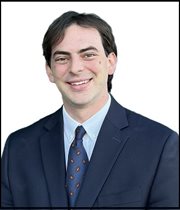Kevin Gianaris

Kevin is a medical student, researcher and former humanitarian NGO executive interested in reducing the global burden of surgically treatable diseases. He has experience working in surgery and learning directly from local surgeons in South Sudan, Angola, Senegal, Colombia and in the Greek Refugee Crisis with Afghani and Syrian refugee populations. He also directed surgical research projects in Cameroon, Kenya, and Myanmar remotely. Kevin has a particular interest in conflict and surgery and in locally led tertiary surgery development in post-conflict settings with a specific focus on cardiothoracic surgery and transplantation. He also has an interest in the climate impacts of surgery and is currently leading the global rollout of the Surgical Provider's Assessment and Response to Climate Change (SPARC2) tool to quantify this impact and target specific modifiable areas for improvement.
He learned research skills when he worked in a major NIH-funded lab in transplantation at Johns Hopkins under Dr. Andrew Cameron, Surgeon-in-Chief at Johns Hopkins, and Dr. Dorry Segev. Kevin then worked in cardiothoracic transplant research at Cedars-Sinai as the American Association of Thoracic Surgeons (AATS) Summer Intern Scholar under Dr. Alfredo Trento and Dr. Lawrence Czer, the founders of the highest volume heart transplant center in the world. To broaden his exposure to premier European health systems, he visited the preeminent cardiothoracic surgeons in Paris who are leading the way in pulmonary hypertension treatment and did a rotation with leading valve surgeons in Milan learning about the Ozaki procedure and endoscopic valve repair.

Epidemiological Profile of Rheumatic Heart Disease in Mauritania
Centre National de Cardiologie
Mauritania
What does the Kean Fellowship mean to you?
The Kean Fellowship provides the opportunity for medical students to learn from local leaders in various different settings. Medical school presents an opportunity for students to learn as best as they can, and the Kean Fellowship provides an opportunity for students to learn in an intensive and unique way. This scholarship can help students combine their clinical and research learning to help inform their training and develop as global health leaders. This is a great supplementation to medical school and will likely change the way we practice in the future.
What do you anticipate learning?
I anticipate working with outstanding doctors in Mauritania who will teach me about a disease that is much more rare in the United States. I look forward to learning about the ways that their center has adapted to address rheumatic heart disease. I look forward to learning more about how to research in these environments and how the researchers here use data to improve their services. I anticipate this scholarship providing necessary background that will inform my future practice as a surgeon.
What interests you about tropical medicine and what problems are you interested in solving?
I am interested in the intersection of tropical disease and surgery. I believe surgery has a unique role in managing these diseases, and I am excited for the future as surgery programs grow in many low- and middle-income countries. I hope to dedicate my career to developing surgical services as a supplement to treating infectious disease and gaining source control. This collaboration can lead to a greater understanding of neglected tropical disease and the problems that arise. I believe there is great opportunity to address these tropical disease and improve services for detection, treatment and prevention.